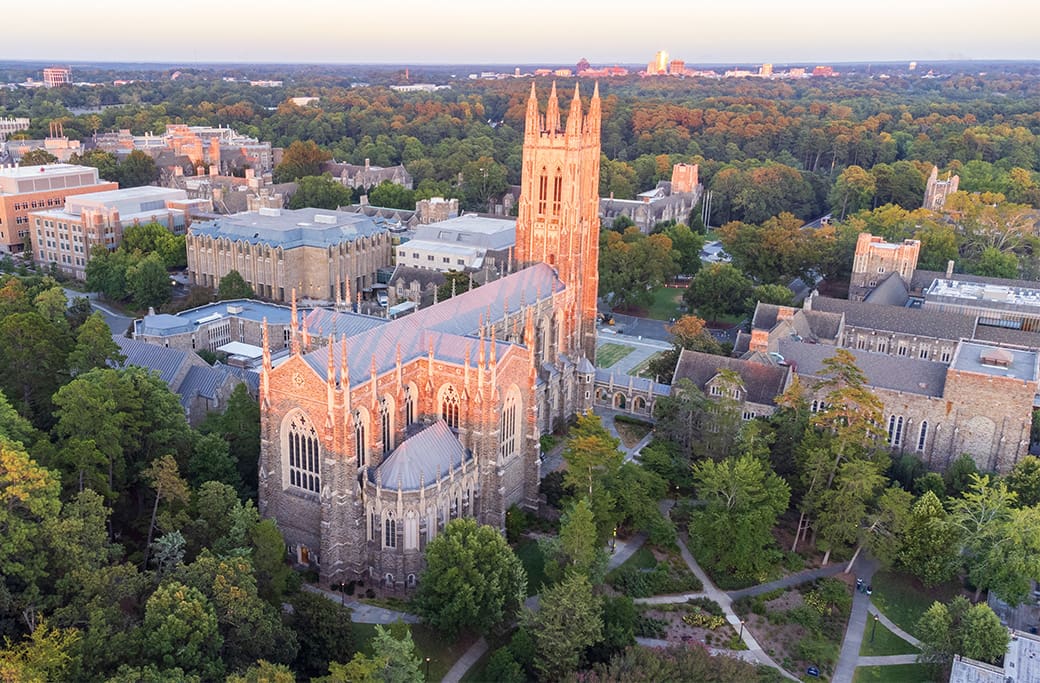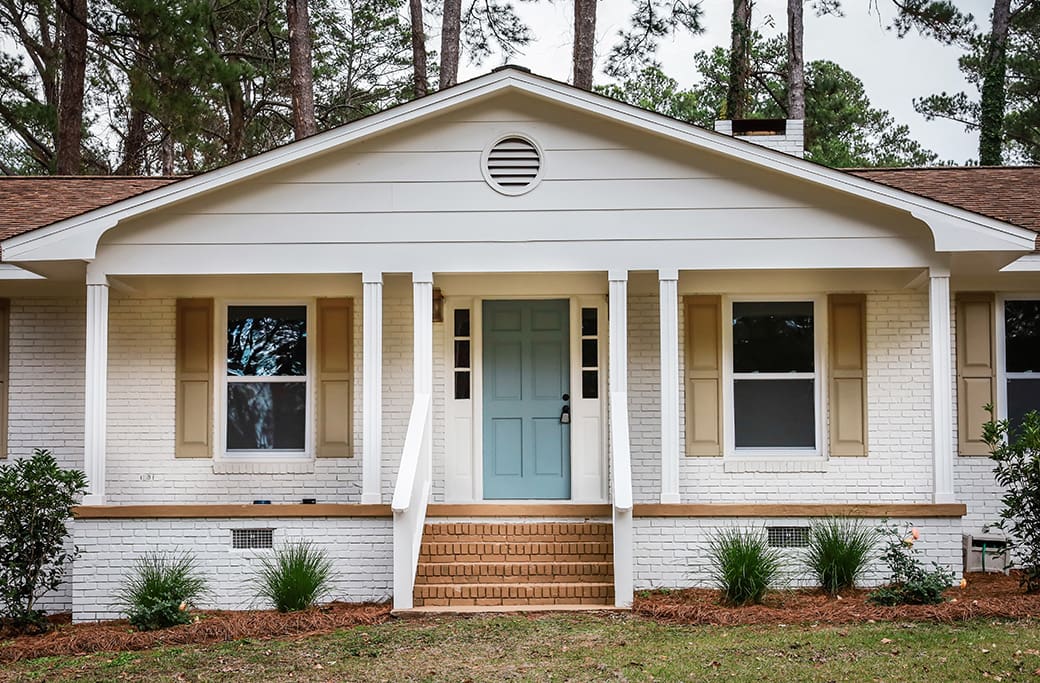
The rising cost of college housing has left many parents and students searching for better solutions. Dorm rooms and off-campus rentals are not only expensive but often come with limitations in terms of comfort, privacy, and flexibility. This has sparked a growing trend in which parents invest in real estate for their college-aged kids.
Is purchasing a home near campus a wise investment or a risky endeavor? At Emily Weems, Realtor we will help break down the advantages and disadvantages of this real estate strategy and provide a step-by-step guide to help you make a well-informed decision.
Why Buying a Home for Your College Student Could Be a Smart Financial Decision

Build Equity Instead of Paying Rent
Renting a dorm or off-campus apartment essentially means paying for someone else’s mortgage. By purchasing a property, you’re building equity in an asset that could appreciate over time.
Consider college towns like Raleigh, Durham, and Chapel Hill, where the demand for rental properties remains high. These areas boast stable housing markets due to their proximity to renowned universities like NC State, Duke, and UNC Chapel Hill. Over the course of four or more years, an appreciating property could yield solid returns.
Tax Benefits
Owning property also comes with noteworthy tax advantages. Parents who finance a home may be able to deduct mortgage interest and property taxes (consult a tax professional for specifics in your area). Furthermore, if the property is treated as a rental property, there may be additional deductions for depreciation, maintenance, and other expenses.
Long-Term Value
Your investment doesn’t have to end when your student graduates. A property near a college campus can easily become a high-demand rental property, providing consistent income. It could also serve younger siblings who attend the same school in the future or be sold for a profit.
More Control and Stability
Owning a home gives you control over living conditions. You no longer have to worry about rising rent prices or the safety and maintenance of your student’s housing. Plus, you can customize the property to suit your family’s needs, adding extras like a home office or study nook.
Potential Risks When Buying a Home for a College Student
Market Volatility
Not all real estate markets appreciate at the same rate, and college towns are no different. While high-demand areas like Raleigh and Durham tend to maintain their value, there’s always the risk that market conditions could stagnate—or even decline—during your ownership period.
The Research Triangle, home to top-tier universities like Duke, UNC-Chapel Hill, and NC State, presents a compelling opportunity for college-town real estate investment. Raleigh and Durham have experienced steady, moderate price growth, with median home values hovering around $400,000. Meanwhile, Chapel Hill stands out as a premium market, with median home prices exceeding $600,000 due to its strong demand and limited housing supply.
Although the Raleigh and Durham markets have shown signs of cooling, low inventory and consistent population growth continue to make them appealing for long-term investors. On the other hand, Chapel Hill’s rapid appreciation and quick turnaround times signal strong short-term potential, particularly for those focusing on student housing or faculty rentals.
Overall, the Research Triangle strikes a well-balanced mix of affordability, stable demand, and growth potential, making it an excellent choice for real estate investors seeking lucrative opportunities in college towns.
Management Responsibilities
Homeownership comes with its share of responsibilities. From routine maintenance to potentially managing roommates or tenants, the workload can feel significant—especially if your student isn’t fully prepared to take on these tasks, leaving the burden on you.
However, these responsibilities don’t have to be seen as a drawback. For parents, the investment can remain relatively hands-off with the support of a local property manager or trusted service providers.
What’s more, the added effort often comes with meaningful rewards—equity growth, tax benefits, and potential rental income that can help offset tuition or living expenses. Instead of viewing homeownership as a burden, consider it a dual investment: one that strengthens your financial portfolio while also contributing to your student’s personal and financial development.
Financing Challenges
Buying a property comes with significant upfront expenses, such as a down payment and closing costs, and navigating the mortgage process can be challenging—especially if you’re considering ownership in your college student’s name or structuring it as an investment property.
Despite these initial hurdles, purchasing a home near a college campus can be a smart, long-term investment. University towns like Raleigh, Durham, and Chapel Hill benefit from historically high rental demand, allowing many parents to offset costs through rental income—particularly by leasing extra bedrooms to other students. Buying the property under a parent’s name often secures more favorable loan terms, while creative strategies like co-signing or forming an LLC can simplify ownership.
While financing requires thoughtful planning, the benefits are substantial. It builds equity, provides stable housing costs during your child’s college years, and lays the foundation for a valuable real estate asset that can continue generating returns well beyond graduation.
Lifestyle Risks
College students aren’t always the most careful tenants. Parties, general neglect, and everyday wear and tear can lead to unexpected maintenance costs.
While it’s true that students may not handle a property with the care of a seasoned homeowner, most wear and tear is both manageable and expected with any rental. When purchased wisely in a desirable location, properties in college towns like Raleigh, Durham, and Chapel Hill tend to appreciate steadily, often offsetting the costs of cosmetic upkeep. Moreover, with the right precautions—such as security deposits, regular inspections, and clear lease agreements—many potential risks can be mitigated.
The property can still serve as a valuable long-term investment or even a future retirement home in a sought-after area. In the end, the minor short-term risks of renting to students are often a small tradeoff for significant long-term financial and strategic benefits.
If you’re ready to invest in student real estate, here’s a structured approach to guide you through the process.
1. Determine Your Budget
Start by evaluating all associated costs—from tuition to living expenses. Decide whether you plan to rent out additional rooms to help offset costs. Keep in mind that these considerations will impact how much property you can afford.
2. Explore Financing Options
Work with a financial advisor to determine the best approach:
-
- Parent-Owned Property vs. Co-Signing with the student.
- Second Home Mortgage vs. Investment Property Loan.
- Explore options like FHA or conventional loans.
Each route will have specific tax and legal implications, so consultation with a professional is essential.
3. Find the Right Location
Look for properties in neighborhoods that are:
-
- Within walking distance to campus, coffee shops, and grocery stores.
- Safe, with ample street parking and student-friendly amenities.
- Viable options for resale or future rental income.
Areas like downtown Durham or Chapel Hill come with premium price tags but offer higher rental and resale potential. If affordability is key, consider locations like Cary and Apex, which are slightly further out but provide good community amenities.
4. Choose the Right Property
When purchasing a student property:
-
- Condos can offer low-maintenance living options, which are ideal for busy students.
- Homes with multiple bedrooms can accommodate roommates, helping offset costs or generating rental income.
- Focus on low-maintenance properties to avoid ongoing upkeep headaches.
5. Structure Ownership Smartly
Decide whether to own the property outright, co-own it with your child, or create a legal structure like an LLC for liability protection. Factor in liability insurance and consult with legal and tax advisors to ensure compliance with any rental or property laws in your area.
Investing in a Home for Your College Student
Investing in a home for your college student comes with both rewards and responsibilities. On one hand, there’s the potential for financial gains, stability, and a personalized living situation. On the other, there are risks tied to market volatility, maintenance, and lifestyle factors.
Ultimately, success lies in careful planning and due diligence. By evaluating both the benefits and potential downsides, you can decide if this strategy aligns with your family’s goals and financial capabilities.
Considering properties near NC State, Duke, or UNC Chapel Hill? Contact Emily Weems, Realtor®, for professional regional advice on navigating the competitive Triangle real estate market. With years of experience in this region, we’ll help you make a confident, informed investment.



